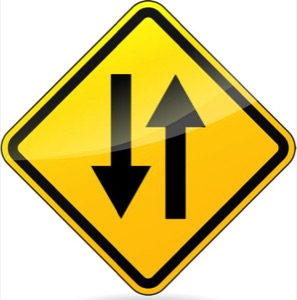
Politicians, pundits and preachers arguing in favor of Religious Freedom Restoration Acts (RFRAs) have coalesced behind a metaphor: Tolerance is a two way street. All they want is the same respect for religion that the LGBT community is requesting for sexual orientation and gender identity. In their view, LGBT activists are on the march, aggressively attacking religious freedom.
Don’t buy it.
The LGBT community aren’t the ones arguing that the streets of tolerance don’t go both ways. At issue is the fact that religious conservatives don’t like how the traffic laws have changed.
For most of American history, religious freedom had the road to itself, at least in comparison to tolerance of sexual orientation. They could call the police on gay couples in their own homes, never mind those who dared venture out. It wasn’t until 2003, when Lawrence v. Texas ended sodomy bans, that LGBT people nationwide got even limited access to those streets.
That didn’t sit well with religions that preach against homosexuality, but they still ruled the road. Whatever relationships LGBT people had weren’t equal to theirs, because there weren’t marriages, even if sanctioned by the government as civil unions. The spread of marriage equality is what has religious conservatives in an uproar, because they are being forced to recognize the legal equivalence of relationships they don’t sanction, at least in places where civil rights laws extend to sexual orientation.
All that the revision to Indiana’s RFRA officially achieved was to prevent the use of religious beliefs to defend discrimination against LGBT people in places that protect them. Outside of Indianapolis and a few other cities, Hoosier bakeries and pizza parlors can refuse to make pies for gay weddings.
That level of tolerance may be a yield sign some religions don’t like, but it’s far from a one way street. No religion is being forced to perform or bless same-sex marriages. No religious institution has to host a ceremony. Homosexuals can still be damned from the pulpit, religious schools and private homes right up to the edge of the driveway.
Most in the LGBT movement will respect the privacy of homes and places of worship in return for mutual acceptance in the public sphere. That is the two way street of tolerance, with laws, the Constitution and their interpretation defining the rules of the road. Even if the Supreme Court brings same-sex marriage to the nation, religious freedom will still have most of the road — just less than they have become accustomed to.
It is the religious right who want tolerance be a one way street where LGBT (and reproductive) rights don’t exist. Unfortunately for them, the rules are changing at a speed that gives them whiplash. Maybe that’s because they’re looking backward for better days, which is a dangerous position no matter who is on the road. They would do better to share the streets and look forward to building a more United States together.











